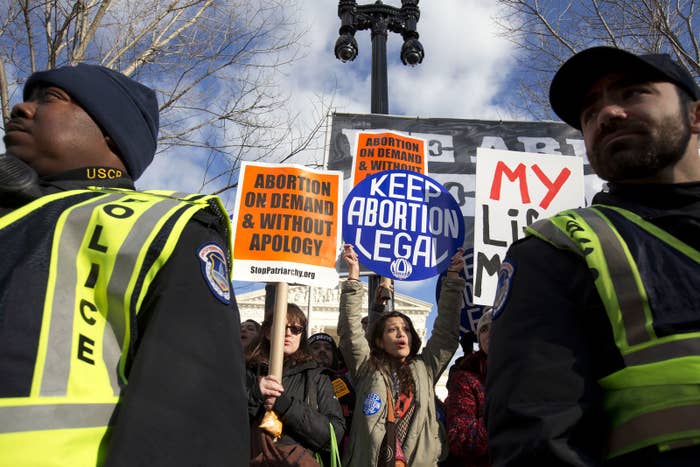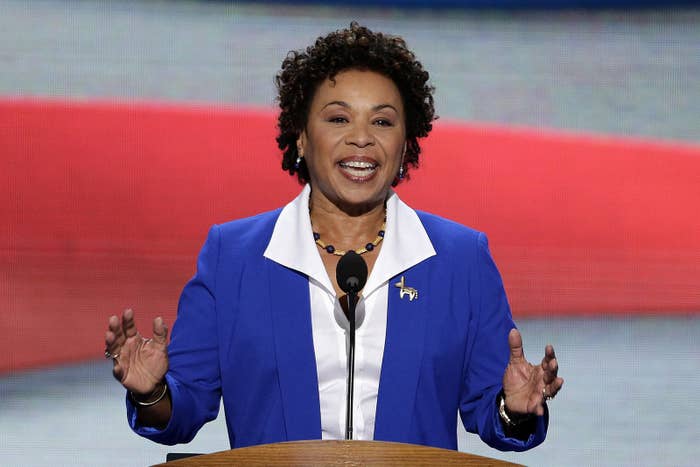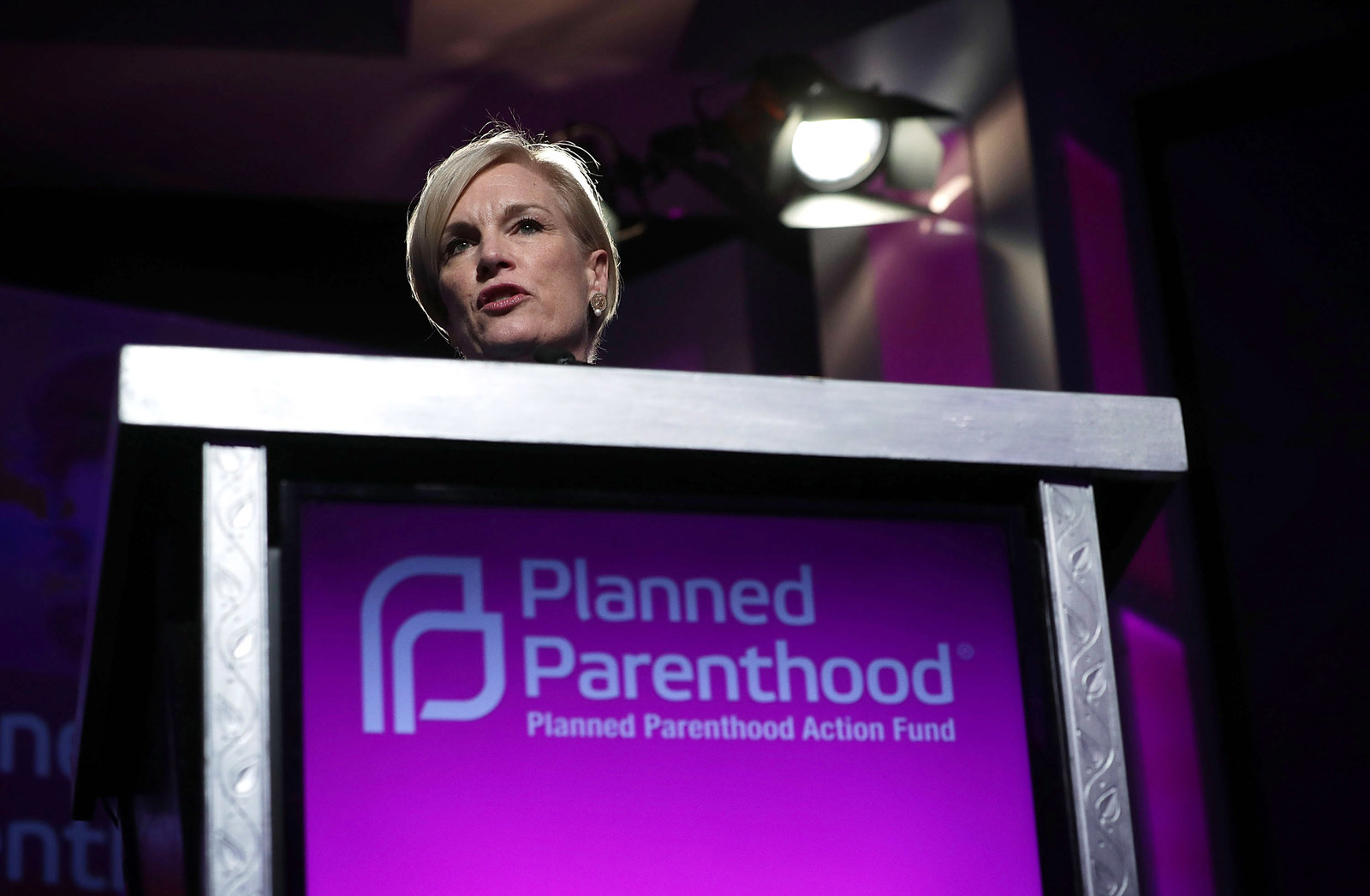
Nearly 300 abortion rights advocates from 90 groups nationwide gathered in Washington, DC, last week to organize strategy and tactics for the coming years under Donald Trump and a Republican-controlled government. Organizers said the size and scope of the daylong session was unprecedented.
The shift from traditional strategy that emerged, attendees told BuzzFeed News, is that reproductive justice groups that focus on women of color will take the lead on groundwork such as lobbying local lawmakers and rallying supporters for protest actions.

Those groups will also help elect “members to Congress who will support women’s rights,” Rep. Barbara Lee, a Democrat from California, told BuzzFeed News. She added that “when these riders come up in appropriations committee, people need to follow who’s on the appropriations committee from their districts and engage.”
Historically the major, and dominantly white-led, reproductive rights organizations such as Planned Parenthood and NARAL — referred to colloquially as the "Big Girls" — were the most visible players when it came to that work. Those groups will continue focusing on their main strengths, such as litigation and fundraising for health organizations and candidates. They’ll also continue to assist smaller health groups and those that represent more marginalized communities, such as SisterSong and National Latina Institute for Reproductive Health.
Leaders in the reproductive rights movement concluded at the session that the fight for abortion rights under the Trump administration will fall primarily to women of color.
"We have always been great at rallying our base, and women of color have always turned out to vote in their own interest," Monica Raye Simpson, executive director of SisterSong, told Buzzfeed News.
"Trump's election has created a new doorway for women of color to be heard in a bigger way," she continued, "an opportunity for us to be centered in the fight."
"Trump's election has created a new doorway for women of color."
The session was organized by Planned Parenthood and In Our Own Voice: National Black Women’s Reproductive Justice Agenda. A member from each of those groups led smaller sections to discuss legal, activist, and political strategies to fight local and federal legislation that might restrict women's access to abortion and reproductive health care.
"In the last two election cycles, black women specifically have made their voices and leadership heard in the [reproductive rights] movement," Marcela Howell, founder and executive director of In Our Own Voice told BuzzFeed News. Last week’s event “demonstrated an enhancement of the opportunities shown over the past year and a half to have real leadership on these issues.”
“Trump made it very clear that his targets are communities of color, and when we look at how black women voted it was clear that we got it,” Howell said, referring to the 94% of black women who voted for Hillary Clinton, versus the 52% of white women who voted for Trump, according to exit polls.
Some anti–abortion rights organizations challenged the idea that women of color are more passionate about advocating for abortion rights, and told BuzzFeed News that putting groups led by women of color at the forefront would not be a successful strategy.
“One of the key factors leading to Donald Trump's election was a rejection of this kind of [identity] politics — the idea that you have more credibility because of your sex or skin color,” said Eric Scheidler, the executive director of the Pro-Life Action League. “It may work for fundraising, but I don't see it working to shift public opinion.”
Mallory Quigley, communications director for the anti-abortion rights organization Susan B. Anthony List, agreed with abortion rights advocates that abortion issues disproportionately affect women of color, but saw this as the fault of abortion rights advocates themselves.
“African-American and Hispanic women and their babies are disproportionately impacted by abortion and are targeted by the abortion industry that tells them they are not strong enough to welcome new life,” Quigley told BuzzFeed News. “No woman, regardless of her race, should have to choose between her child and a better economic future.”

Many activists of color felt erased by the pro–abortion rights movement since its inception, said Lee, who has been active in it since the 1970s.
"Pro-choice women often did not talk about” the inclusion of women of color in the movement before the 2016 election, she said.
(In 2014 Simpson wrote an open letter to Planned Parenthood demanding the women of color in the movement be recognized.
Planned Parenthood’s CEO, Cecile Richards, responded apologetically, and the groups began working together on eliminating the Hyde Amendment, a law that bars any federal government or taxpayer money from funding abortions and primarily affects low-income women and women of color.)
Richards signaled the new shift in a statement to BuzzFeed News.
“Planned Parenthood is grateful to work with leaders across our movement to protect access to reproductive health care,” she said. “We know that Planned Parenthood has not and cannot do this work alone and deeply value and continue to learn from our partners in the movement who center the most marginalized.”
The Trump transition didn’t immediately respond to a request for comment.
